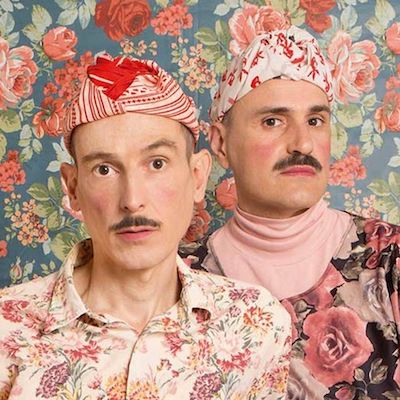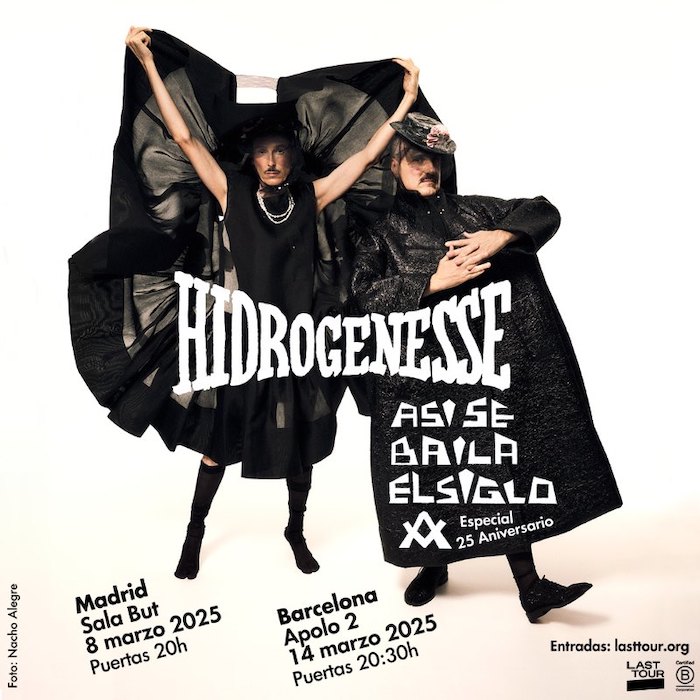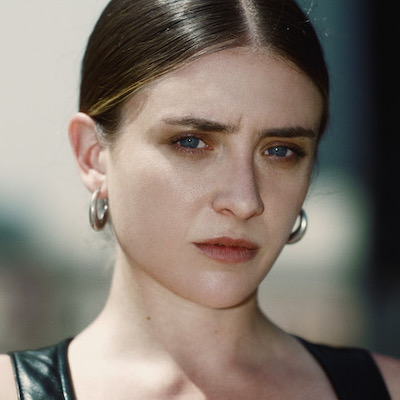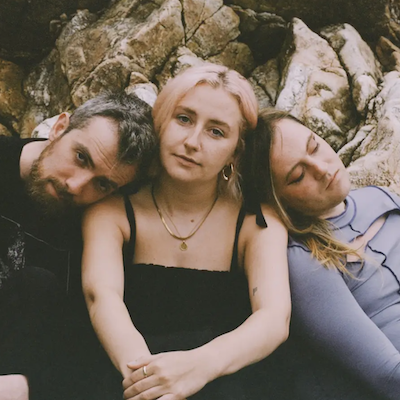
Next year, Spain’s Hidrogenesse celebrate twenty five years of releasing music together. The duo of Carlos Ballesteros & Genís Sagarra began recording at the dawn of electro-clash, inspired by the DIY of it all, mixing Punk and a PC.
Since then Hidrogenesse have continued to release intelligent, creative projects, always with one eye arched. Looking at their back catalogue there is an album inspired by Alan Turing, a remix for Jarvis Cocker and a ballad worshipping the Cobains ‘Kurt, Courtney, Frances Bean and Me.’ In the last year alone, they have released a concept album about the more bizarre stories in Barcelona’s history, created the music for La Mesias’ Stella Maris and written a song for Spain’s cutest queer couple, Martin & Juanjo.
To celebrate their silver anniversary, the pair will be playing both Madrid & Barcelona in March, playing favourites from their past, present and future. This week they release a Christmas carol – Hidrogenesse style, entitled, ‘Volver.’ We spoke with them to find out more.
Carlos, Genís, we first saw you in concert a year ago and loved the diversity of people there. Punks, parents, culturistas, queers and kids. Has this always been the case at Hidrogenesse shows?
Well, we guess it’s usually like that. We remember playing Rizoma Festival in Madrid back in 2011. John Waters was there and, after the show, he said the same thing to us. He said that he loved that our audience was so diverse, a great mix of people. He was surprised and pleased it was not a full audience of ‘cool’ gay young men, but there were women and men of all ages, queer kids and gay elders, “even straight people!” He congratulated us for that.
That show was for your Ciutat de Sorra. An album you created for an exhibition about Vila Olimpica in Barcelona. If I understood it correctly it felt like a great mix of humour, fact and an honest tribute. How did you approach it?
Ciutat de Sorra (City of Sand) was an exhibition by artist David Bestué about the various transformations of Barcelona, with all the tension, distress and even violence attached. He gave us tons of local press clippings from the 1970s to 2010s that showed all the themes he was trying to explore. It was great fun to put music to some headlines, captions and pieces of news. Some of them were almost poems or songs when taken out of context. Some phrases sounded so musical or the composition was so funny!
How did you decide to keep that uniform structure to each song?
We always wanted to try that kind of folk song structure where the ‘chorus’ is the same to various verses with very different subjects. It worked so well with Ciutat de Sorra, where every little song ends up with the same chant and that gives them intention and at the same time causes a funny dramatic effect.
As part of the encore you sang ‘Estafa’ which we have not stopped singing. It took us back to the electro-clash days in London. Can you tell us about the song?
‘Estafa’ is from 2001 if we recall correctly. It was a song created to sing along with the audience from the DJ booth when we did DJ sets. (We used to host parties in Barcelona and DJ all over Spain back then.) It was a protest/celebration song invented with that particular use in mind. Then we published the song as an anonymous band under our label Austrohúnagro, and later we decided to play it live in our shows as Hidrogenesse. The rise of electro-clash in the early 2000s was very important for us and our label because our way of doing things (DIY, electronic, festive, off-circuit) was more widely understood. We found a context to what we were doing naturally.
My friend Joaquin (Shout out to Joaquin!) recently introduced me to your album about British Queer legend, Alan Turing. What’s the story behind this album?
We had been suggested twice to write about Turing! We were approached by an art curator in 2012, because it was the centenary of his birth, and we were like ‘Isn’t he that guy our friend is always saying we should write about?’ We started researching about his work and his life and we fell in love with him. We ended up with so many ideas for songs that we completed an album, Un Mystique Determinado, that is like a musical biography. His thoughts and spirit were so inspiring, and his circumstances so full of important questions (justice and law, public and private honor or shame…)
Totally. This summer we loved your show with Stella Maris at Primavera Sound. An incredible show. How was the Stella Maris experience for you?
It was so fun. We love commissions (like Ciutat de Sorra) that make you write songs you wouldn’t do otherwise. Calvo and Ambrossi were sending us the screenplay for every episode when they finished them, so we could start writing the songs the episode needed. Episode 1, two songs. Episode 2, one song. Etc. We didn’t know who the girls were going to be. Then, months later, we rehearsed and recorded the songs with the girls, and that was the best part. Nobody thought there would be a live show to put on, but Primavera Sound asked if Stella Maris could play in that year’s opening day, and everybody was all for it.
There’s a definite Harajuku meets electro-Catholicism to the music. Did all the ideas for genres come from you as well? How did you decide on that?
Reading the script you could really know the characters, their context. So we decided it had to be an electronic band, because their will to spread a message with music is what’s important. The sisters are not some girls who enjoy playing instruments and train themselves to master the piano or the drums. They need a means to spread their message. So what kind of a genre-clashing would a self-taught producer with an internet connection make?
Did it feel like a new era for Hidrogenesse? People like myself discovering you…
Not really. Because the music of Stella Maris is something bound to La Mesias. That’s the way it should be, because that’s the way we created it, made to measure for Ambrossi and Calvo. We hoped it could help us to find new commissions and work opportunities, but we were not expecting new audiences. But we are happy with people discovering us in that amazing context.
The production on ‘Donde Estas?’ is incredible. It captured the moment in the show so well. Can you tell us more about this song specifically?
It’s the only Stella Maris song that goes beyond the limits of their YouTube videos… It floods the final scene of that episode. So it started like another Stella Maris song (same production, similar beats and sounds) but Calvo, Ambrossi and the editor Alberto Gutiérrez needed something different that encompassed the whole scene, its rhythm and its mood. So we reworked the song entirely and arranged it watching that last scene of the episode.
From Stella Maris to one of our favourite moments of the year, your song for Juanjo & Martin. Can you tell us about how you came to work with them?
Well, that’s the ‘new people discovering Hidrogenesse because of La Mesías’! Juanjo and Martin were big fans of the show and asked their team to contact us. We had conversations about what kind of song they wanted, what they expected from us, and falling in love in such a strange situation (in a streamed reality TV talent show). We were so curious because the beginning of every relationship is so unique and universal at the same time. Then they asked us about our relationship too and how it began! So we talked about our common experiences. It is really funny because it’s a song written for them, and with them, about the dawn of their relationship, but it’s also about ours.
I know Martin spoke of a Bjork inspiration which I love too.
We think Martin mentioned Bjork as an inspiration for the music video. He is very ‘visual’ and envisions pictures and images when he is making music.
Then you have just released your new single ‘Volver.’ Can you tell us about what inspired the song?
It’s a song we wrote to close our last show in Mexico City in 2023 after a short tour, the very last day before coming back to Barcelona. First it says why we returned to Mexico, and conducts those motivations to cast a spell for a future visit. So we can be returning over and over again.
You’ve said you see this song as a Christmas Carol. Unexpectedly I hear this vibe in the Vocoder A Capella mix! It must be the vocoder making your voice sound like a church organ. Tell us about this mix…
Inhuman voices (like a vocoder) can be very solemn, and very emotional too. And you can modulate a simple monotone electronic buzz (to sound like an old robot) or very complex, rich and emotive harmonies. So any text can be read, or sung, like a whole choir.
The production approach was different this time with local musicians in Mexico. How was that process for you?
It was fun. We have known Hugo Quezada since our first visit to Mexico in 2009 and it was a pending matter to record something in his studio because he is a great producer. With Rolando Cantú, we just met him this year when he came to one of our shows and we found out he played oboe with the National Symphonic Orchestra. So we invited him to play on the song.
Yes, there is also an oboe mix! Tell us about the power of an oboe! Is it an overlooked instrument?
We love wind instruments, and when we have access to something/someone great, we do exploit the occasion. And we love the extended versions of Soft Cell’s first album with all those clarinet solos.
Next up we have your shows in Madrid and Barcelona in March celebrating 25 years! Congratulations. What do you feel most proud of from these first 25 years? What can we expect from the shows?
25 years ago we published our first single ‘Así se baila el siglo XX’ and we thought it would be great to celebrate. We will prepare special shows to celebrate all our records, from first to last.
What is next for you in 2025?
‘Daniela Forever’ will get a theatrical release. This movie, by director Nacho Vigalondo, feature an original music soundtrack by us! And we appear in the movie also! So we want to release the album with the movie’s soundtrack.
Lastly we are named after the biggest selling single of 2001, Mariah Carey’s ‘Loverboy’. So we always ask what is your favourite Mariah song?
Haha…it could be ‘It’s like that’. We love insistent silly hooks and cowbells. And the outro rap is hilarious!
Hidrogenesse play Barcelona’s Sala Apolo, 14th March. Tickets onsale via Fever.
Hidrogenesse play Madrid’s Sala But, 8th March. Tickets onsale via Ocho y Medio.










